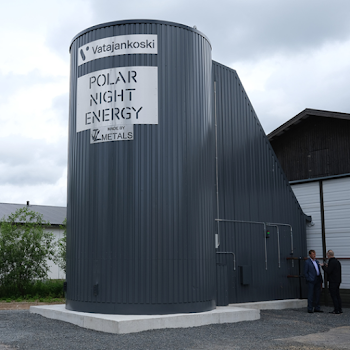SAND BATTERIES: The Future of Energy Generation & Storage Series
SAND BATTERIES
Imagine walking on a beach at night, feeling the warmth of the sand under your feet. You might wonder how the sand can retain so much heat even after the sun has set. What if you could use this amazing property of sand to store and generate energy from renewable sources? This is not a fantasy, but a reality. In this blog, we will explore the fascinating technology of the sand battery, a new and promising solution for the green energy transition.
Solar and wind energy sources are becoming
increasingly popular and cost-effective, however, they also present a challenge
in terms of how to effectively store the surplus energy they generate when the
need is low, as well as how to ensure a consistent and reliable supply of
energy when the need is high. Conventional batteries are one of the solutions,
however, they come with a number of drawbacks, such as their high cost,
negative environmental impact, short lifespan, and lack of efficiency. However,
a novel type of battery, the sand battery, may be able to address these issues
by utilizing sand or similar materials as a storage medium. This type of
battery is a thermal storage system that stores energy in the form of sand,
which can be used to heat buildings or generate electricity through a heat
engine.
The utilization of sand as a form of energy
storage has been around for some time, however, recent developments have seen a
surge in interest in its use. Polar Night, a Finnish company, has recently
installed the world's first commercial sand battery, which is capable of
storing up to 8 million kilowatt hours (MWh) of energy when fully charged. The
battery is housed in a 7 meters high steel container and is powered by
electricity generated by a wind turbine and solar panels. The power generated
by the battery is then used to heat up the air within the container, which is
then circulated around the battery by a district heating pipe and a fan. This
hot air is then sent to the power plant, where it is used to heat and provide
hot water to approximately 100 homes and one public swimming pool.
The benefits of using a sand battery are many.
Firstly, it is inexpensive and easy to construct and maintain. Secondly, the
company uses low quality sand rejected by builders instead of high quality
river sand which is in great demand and in short supply. Thirdly, the sand
battery has a long lifespan and can be repeatedly heated and cooled without
deterioration. Fourthly, the only moving part of the system is the fan which
can easily be replaced if needed.
The sand battery is efficient and versatile.
It is able to store energy for long periods of time without major losses. It is
also able to charge and discharge rapidly depending on electricity price and
demand. The battery can work with renewable energy sources that produce
electricity such as wind power, solar power, hydro power or biomass power.
Lastly, the sand battery is environmentally friendly. Unlike some conventional
batteries which contain toxic and hazardous materials such as lithium, lead or
acid, the sand battery emits no greenhouse gases and pollutants during
operation and poses no fire or explosion risk
The pioneering and fascinating sand battery
holds the possibility to transform how we store and use renewable energy. Our
dependency on fossil fuels might be reduced, our carbon footprint possibly be
lesser, and our energy security and resilience might be improved. In isolated
regions with limited access to reliable, affordably priced electricity, it
might additionally open up new potential for economic growth and social
welfare.
Though the sand battery is still in its early
stages of development and possibly deployment, it has already attracted the
interest of numerous investors and
international parties. The business intends to boost its capacity for
production and installation soon. Furthermore, there are continuing research
attempts to further improve the sand battery's design and performance using
various materials, techniques.
Credits: Vijaysingh Rajput-Tech Tuesday COEP BLOGS
References :
.






Comments
Post a Comment